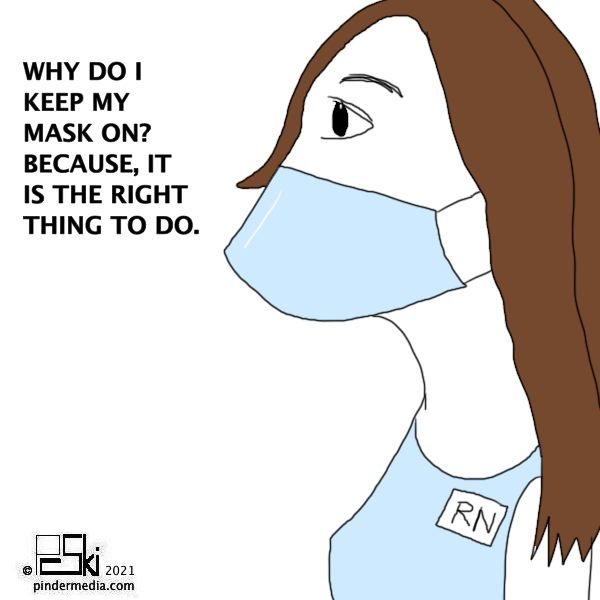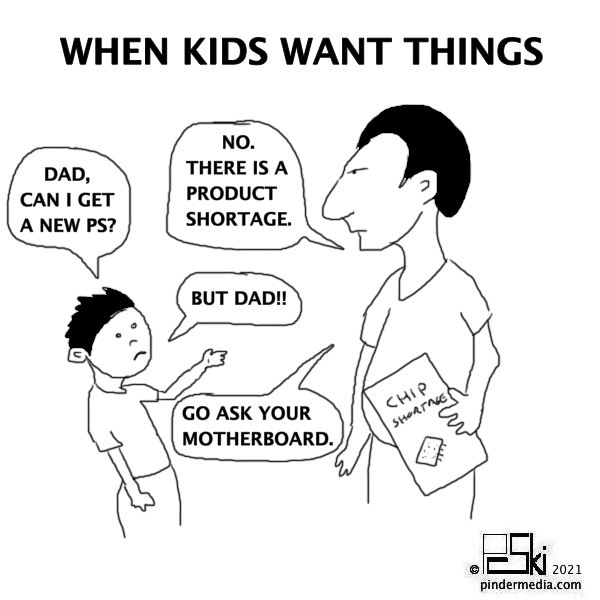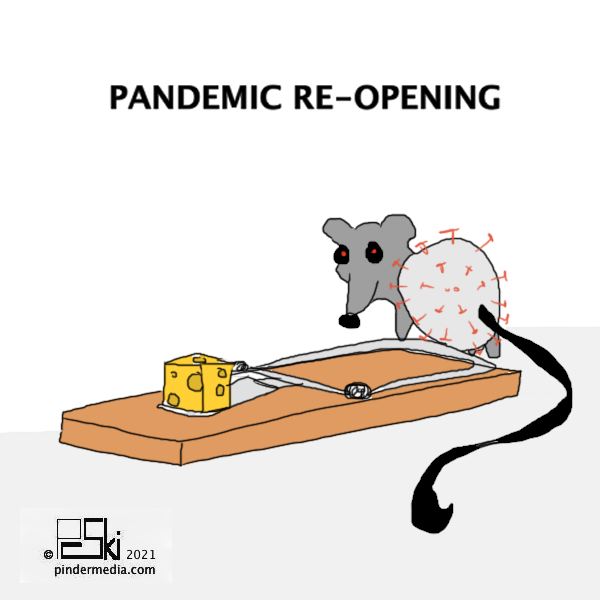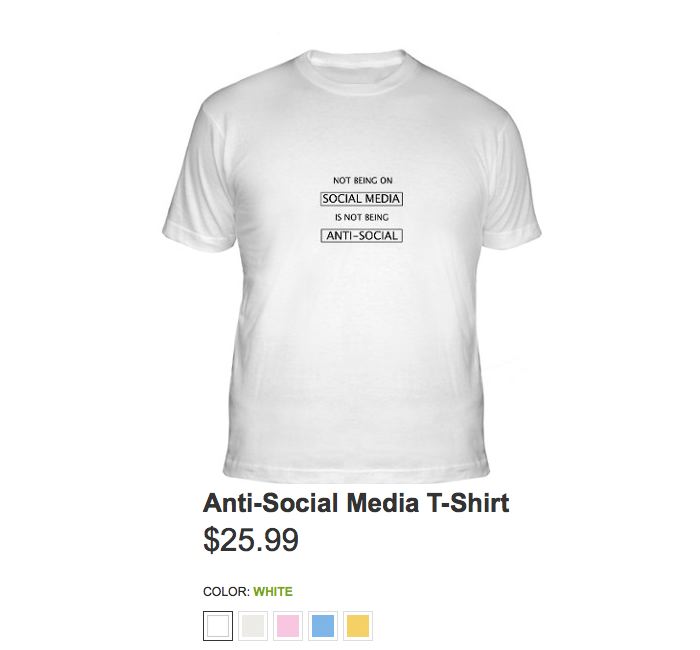|
cyberbarf VOLUME 19 No 12 EXAMINE THE NET WAY OF LIFE JULY, 2021
SPILLING INK A LETTER FROM THE PUB iTOONS BARF BAGS WILD SWINGS WHETHER REPORT
©2021 Ski Words, Cartoons & Illustrations All Rights Reserved Worldwide Distributed by pindermedia.com, inc
cyberculture, commentary, cartoons, essays
|
"Yo-rum"
Dreams Last Longer Under the Sun. Independence.
|
|
cyberbarf SPILLED INK ARTICLE The print media business has had a rocky decade. Newspaper circulation and advertising has nose dived because of the internet. General interest magazines are basically extinct. Journalism is taking hits from all elements of the political spectrum. But one would think that journalism itself would band together to weather the storm. The grand award in journalism is the Pulitzer Prize. This annual award recognizes the best news reporting, photography, and other aspects of journalism. But this year, there was a major controversy. Despite three editorial cartoon finalists, the Pulitzer Board decided not to award a prize in this category. The Pulitzer Prize Board chose not to name a winner in Editorial Cartooning - - a decision some are calling an insult to all cartoonists. The Pulitzer Prizes announced Friday that Ken Fisher, drawing as Ruben Bolling, Lalo Alcaraz, and Marty Two Bulls Sr. were the finalists in Editorial Cartooning (nominated by a panel which included two award winning political cartoonists.) The last time no award was given in Editorial Cartooning was in 1973. The five-person jury for the category picked the finalists but the larger Pulitzer Prize Board, which selects the winners for all the prizes in journalism and the arts, did not do so for cartooning because “no consensus pick emerged.” Editorial cartooning has a rich history in America. It is an artistic expression of the cartoonist's opinion as valid as a columnist's written words. Jen Sorensen, President of The Association of American Editorial Cartoonists, strongly disagreed with the decision by the Pulitzer Board to award no Pulitzer Prize in Editorial Cartooning in 2021. “We are mystified by the pointed rejection of talented Finalists as well as the many other artists who have been creating powerful work in these most eventful and challenging of times. The medium of editorial cartooning has been evolving for many years now, yet the Pulitzer board remains extremely traditional and narrow-minded in its tastes, apparently uncomfortable with contemporary trends in opinion cartooning and comic art. Last year the board discarded the jurors' choices and selected its own winner; this year represents a new low in this trend of insularity and institutional hubris. It is notable that the three Finalists chosen for 2021 were of Jewish, Latinx, and Native American backgrounds, yet this is the first time in 48 years that the board has chosen not to issue an award. No woman has won in twenty years, and there has been only one female Finalist during As this has been a tremendously difficult time economically for our profession, the AAEC would like to request a return of the entry fees for those who submitted. We would also urge radical structural reform of the award to evaluate modern opinion cartoons by 21st century standards.” The Washington Post reported the decision sparked a flurry of questions and comments on social media, followed by pointed criticism from cartooning outlets and organizations. Common responses amid the backlash were “disappointed,” “insulted” and “wrong” -- and frustrated a community within journalism that has often felt imperiled, downgraded and disrespected in recent decades. In its heyday, there were more than 250 full time staff editorial cartoonists in American newsrooms. Today, that number has dwindled to less than twenty. In every budget cut, a cartoonist was usually the first to be let go. When a reader complained about a piece, the cartoonist was usually thrown under the bus as a prelude to being thrown out the door. Most of current publishers and editors have no grasp of what is an editorial cartoon. The misconception is that it is just a funny graphic. And the funny pages are for kids and not on the editorial page. But those cartoons provoke strong reader reactions. Because editorial cartoons are supposed to create strong reactions as commentary on matters of significant social, cultural and political issues. The Post said all three finalists -- Alcaraz and Bolling for the second time in their careers, had gratitude for the recognition, yet they were also bewildered. Alcaraz responded, “I'm trying to find out whether I lost -- or won -- a Pulitzer.” Bolling said, “I've honestly never been insulted by losing an award -- I don't feel I've ever deserved anything. But I am insulted by this decision by the board, on behalf of myself and all cartoonists.” The Daily Cartoonist reported Two Bulls says he plans to mention it in his advertising. And Alcaraz says he still basks in the uplift of being a Pulitzer finalist again. “I'm not going to tattoo it on my forehead, but I am going to talk about it all the time,” he said. Most American editorial cartoonists are now freelancers: either distributed by a syndicate or directly serving their own clients . They grind on a daily basis to find a story to tell or re-tell to inform yet entertain their readers. A cartoonist follows the basic journalism principles (truth, factual reporting) but uses cultural images, metaphors, satire and parody to comment on a news or political story. At the beginning of the Trump administration, it was very hard because Trump himself was his own self-parody. There are powerful images that can be portrayed in cartoon art. 2020 featured historic news stories on race, justice, health care and the pandemic which needed some insight and road map through the morass of the political swamp talk and spin. This was the second year in a row that the Pulitzer Board did something strange. In 2020, it did not award the prize to any of the cartoon finalists, but chose their own (non-nominated) artist for what most concern graphic journalism, telling a detailed story in graphic novel panel form. Editorial cartoonists at the time said the board should have created a new category for that type of work. The Board did that when it made a special citation to the young woman who filmed the George Floyd incident. She was not a reporter or journalist but a bystander whose cell phone footage was used by the media to show her eyewitness account of the tragedy. It is hard to understand the logic for awarding non-journalists and not awarding a prize in an existing category with worthy finalists. But it does show that the Pulitzer Board, like many newspaper publishers and editors, continue to not understand the meaning and purpose of editorial cartoons. Which is a shame considering politicians and public officials hate them - - - because they often shine the spotlight on their stupid behavior. cyberbarf A LETTER FROM THE PUB OPINION Dear Pulitzer Board, Do you even wonder why there is a bad perception that East Coast Ivory Tower decisions are not the way of the real world? You have taken the guardianship of “journalism” too far. In your award rules, you have reserved the right to review submissions on “a case by case basis,” but it seems you linger on the nostalgia of heady days of print journalism (even to the detriment to broadcast journalism). All three Editorial Cartooning finalist were qualified individuals. Their work was screened by an experienced panel of judges. But as a Board, you could not find a consensus to honor one of these cartoonists? If they were all worthy of the recognition, why did you not just give the award to all three of them? Pulitzers are shared by news reporters and staff writers all the time. This is really bad PR. But you do not care about public relations. It is simple tell that you are saying that editorial cartoons no longer have a place in your antiquated view of journalism. Perhaps you should rename the prize “We know that you do something but we don't know what you do except cause complaints to your editors and publishers” award. There are a few cartoonists who believe that the reason no award was given was the fact that all three finalists were published in alternative weeklies instead of in the mainstream. For keepers of the polished liberal viewpoint, if that was even a small part of the reason for the decision, then shame on you. It is the cartoon message that counts, not the messenger. I have been creating editorial cartoons since 1978. But according to your rules, I do not qualify for any award review because I do not belong to the “club” of recognized eligible newspapers, magazines and news sites (affiliated with eligible publishers). Your rules state freelance reporters, photographers, cartoonists, columnists, critics or bloggers who produce working in print or online can enter the competition if their submitted work has been published by eligible newspapers, magazines or news sites during the calendar year. That is a self-serving barrier when the news business has so dramatically changed in the past decade. People do not get their daily news from printed newspapers or broadcast news. People get most of their information from their SNS feeds, text links to stories or featured, targeted infomercials. A cartoonist with a million followers on IG or facebook would have more readers than the circulation of most major American newspapers. But he would not be eligible because a platform is not a publisher, let alone a system that sucked old media advertising away to its grave. As a member of the AAEC, I agree with Jen Sorensen's statement on this issue. But here is the great irony of your decision: editorial cartoonists probably did more to show the fallacies of the Trump administration than dozens of investigative stories. The depiction of the president's rants, illogic, lunacy, arrogance and lack of presidential behavior turned enough voters to oust him from office. But that kind of reporting and analysis does not register in the Columbia faculty lounge or nearby French bistros. Editorial cartoons are raw, offensive, thought provoking exercises to make readers think. It is really hard to make people take a second look and independently investigate important issues that affects their lives since the Internet has created vast pockets of like minded thought cocoons. Newspaper publishers have hired web engagement editors to drive readership comments and interaction with their stories and staff in order to build some trust and to monetize their surf habits. But an easy engagement tool is the editorial cartoon. Why abandon something that works? But editors only find cartoons troublesome. They only hear complaints about a cartoon being offensive. But at least those readers are reading your content! Given your recent track record, I wonder when you will be establishing a new TikTok category. Very truly yours, Ski
|
|
iToons
cyberbarf WILD SWINGS VAX POPULI The pandemic is over because someone in authority says it is over?
Politics has ruined much of our culture and public discourse. The pandemic is no exception. People tried to rebel against the initial lock downs. People lost a lot of money. People were out of work. The federal government printed trillions of dollars to keep people from rioting in the streets. But that happened anyway. A deadly new virus that can kill people was enough to turn the world upside down and inside out. But after a year of confinement and the prospect of several experimental vaccines, the political winds post-election have been “re-open or else!” The U.S. has flatlined at 45 percent fully vaccinated. There are large areas of the country well below that national average. Only a few states have reached the 70 percent threshold some say will cause herd immunity. But no one knows for sure. The vaccines are not immunity guarantees. There is no ten year detailed trial data to show the effectiveness of any of the jabs. There is only some evidence that full vaccine doses can lessen the symptoms of the disease. The myth that this is a cure and everything can go back to normal is naive. It is also naive to think you cannot get sick if you have the vax. More and more breakthrough cases have been reported throughout the world. The Delta strain from India has been transmitted globally with a third surge of infections which is causing many countries like the U.K. and Australia from placing new lock downs in place. People are alarmed by the three times the expected adverse vaccine reactions to children 12 to 18. Heart condition complications scare parents more than the illness. And the push has been to fully reopen schools in the fall because students have now fallen two years behind in their normal education cycle. If the logic was to keep people separated so contain the spread of the virus, putting students back into classrooms without an effective vaccine seems to lack common sense, says some parents and teacher union representatives. But at the same time, there are so many people who took off their masks, stopped washing their hands, to start crowding the bars to have a good old time. But on the average, the person next to you is probably not vaccinated as he slobbery tells you his pandemic horror stories. There was a story that a person decided to determine for himself whether masks were really effective in stopping the spread of Covid. So he sent his mask for lab testing. He was surprised by the result found on his mask: a host of pathogens including TB were found. We have all probably been exposed to Covid in some form. What is different is each individual's immune response to it. The medical problems associated with the disease is that one's immune system goes out of control to fight it, causing other problems to surface like blood clots or pneumonia. Experts think the vaccines may be only temporary since the virus appears to mutate faster than a normal flu strain. There may be the need for annual booster shots. All these uncertainties complicate our lives. If this is the New Normal, many people do not want any part of it. People have been cooped up too long to care. There were few lessons learned by the pandemic restrictions. People want to travel. People want to party. People want to enjoy life. Life is all about risk and reward choices. But there are some in the population (young children and people with pre-existing conditions) who cannot choose to vaccine to receive any marginal or perceived benefits. But as the majority herd moves on in nature, so does the human instinct to be free. Maybe out collective sense or responsibility has been dulled because we have been told what to do for the past year. Countries have found that they are more dependent on tourism than they ever imagined. With international travel still at a stand still, the idea of vaccination passports to revive the global travel economy is something that everyone cannot agree on. The debate continues to have wild swings in public opinion. Getting the vaccine was perceived as one's Get out Jail Free card. While others view it with suspicion and dread. The daily infection and death reports are not covered as top news stories. Will people still wear masks in public? Will they be looked down upon? If you don't have to do something, people will choose not to do it. But it taking one small step to a giant leap of faith that the situation is over is something everyone has to think about since no one knows how this pandemic is really going to turn out months or years from now.
|
|
YOU
NEED TO KNOW WHEN TO QUIT BEFORE IT IS TOO LATE TO STOP THE PAIN.
|
|
LADIES PJS ON SALE NOW! |
FREELANCE CARTOONS, ILLUSTRATIONS FOR NEWSPAPERS, MAGAZINE, ON-LINE DO YOU CONTENT? CHECK OUT
|
|
|
 |
 |
|
cyberbarf THE WHETHER REPORT |
cyberbarf STATUS |
|
Question: Whether the new G4 YouTube channel will find its old popularity? |
* Educated Guess * Possible * Probable * Beyond a Reasonable Doubt * Doubtful * Vapor Dream |
|
Question: Whether more massive federal spending keep the economy from an inflationary nose dive? |
* Educated Guess * Possible * Probable * Beyond a Reasonable Doubt * Doubtful * Vapor Dream |
|
Question: Whether the chip shortage will hamper releases of the next generation of consoles and video games into late 2022? |
* Educated Guess * Possible * Probable * Beyond a Reasonable Doubt * Doubtful * Vapor Dream |
|
OUR STORE IS GOING THROUGH A RENOVATION AND UPGRADE. IT MAY BE DOWN. SORRY FOR INCONVENIENCE.
LADIES' JAMS MULTIPLE STYLES-COLORS $31.99 PRICES TO SUBJECT TO CHANGE PLEASE REVIEW E-STORE SITE FOR CURRENT SALES
|
PRICES SUBJECT TO CHANGE; PLEASE CHECK STORE THANK YOU FOR YOUR SUPPORT!
NEW REAL NEWS KOMIX! SHOW HACK! |
 |
cyberbarf
Distribution ©2001-2021 SKI/pindermedia.com, inc.
All Ski graphics, designs, cartoons and images copyrighted.
All Rights Reserved Worldwide.









